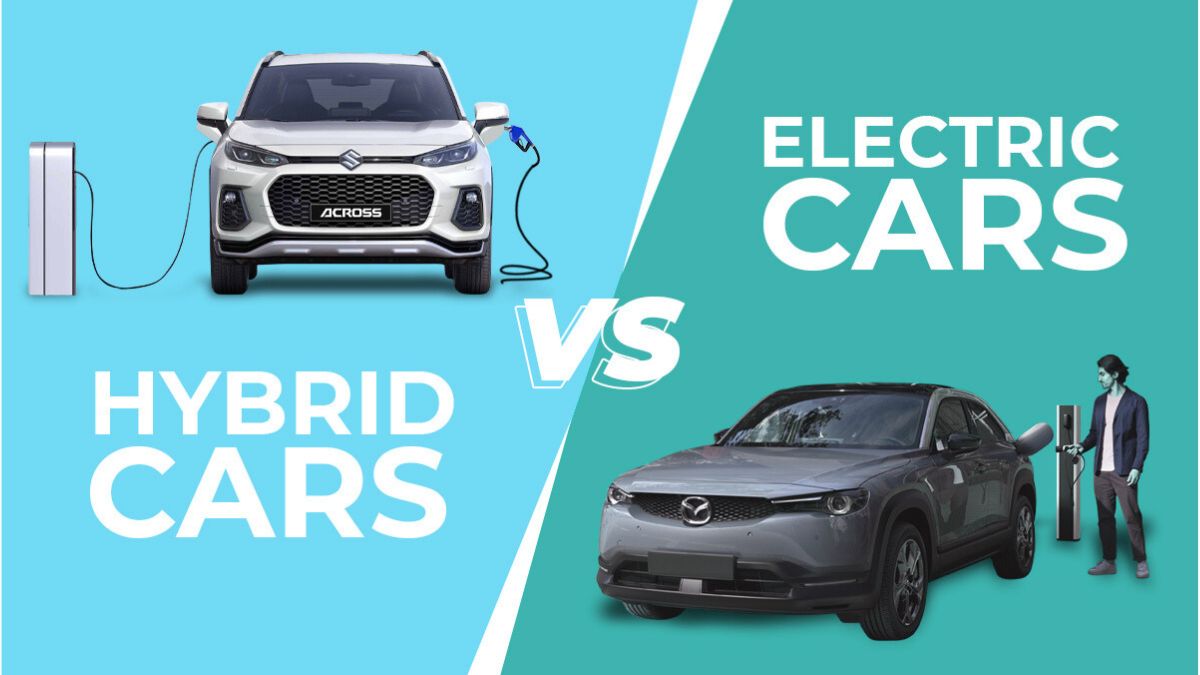The automotive industry is transforming rapidly, and in 2025, the debate between Electric Vehicles (EVs) and Hybrid Vehicles has intensified. With rising fuel costs, government incentives, and growing environmental concerns, buyers are increasingly comparing electric vs hybrid cars to determine which suits their needs best.
Overview: Which Vehicle Type is Right for You?
Electric Vehicles (EVs) are ideal for urban drivers who have access to charging stations and prioritize lower long-term running costs and eco-friendliness. Hybrid Vehicles (HEVs), on the other hand, are suitable for those who need flexibility for longer journeys and live in areas with limited EV infrastructure.
Cost Comparison: Purchase Price, Running Costs, and Ownership
| Vehicle Type | Upfront Price (PKR) | Fuel/Electricity (PKR) | Maintenance (PKR) | 5-Year Ownership Cost |
|---|---|---|---|---|
| Electric Vehicle (EV) | 6M | 0.6M | 0.2M | ~6.8M |
| Hybrid Vehicle | 7M | 1.2M | 0.5M | ~8.7M |
| Petrol Vehicle | 3.5M | 2.5M | 0.7M | ~6.7M |
Electric cars may have higher initial costs but offer the lowest running and maintenance expenses. Hybrids save fuel compared to petrol cars but still rely on fossil fuels, leading to higher long-term expenses.
Range and Refueling: Charging vs Petrol Convenience
Modern EVs in 2025 offer a range of 400–600 km per charge, with fast charging capabilities providing up to 80% charge in 30–45 minutes. Hybrids deliver an electric-only range of 20–80 km and rely on petrol engines for extended trips. Pakistan’s EV charging infrastructure is improving in major cities, but petrol stations remain the most convenient option nationwide.
Environmental Impact: Emission Reductions
EVs are the cleanest option, producing zero tailpipe emissions and significantly reducing environmental impact, especially when charged with renewable energy. Hybrids, while more efficient than petrol cars, still contribute to emissions due to their dependence on fossil fuels.
Resale Value and Reliability in 2025
Hybrids, particularly Toyota models, retain their resale value well. EVs, however, face depreciation concerns related to battery longevity and evolving technology. While EVs and plug-in hybrids have shown higher repair rates, non-plug-in hybrids are considered more reliable.
Government Incentives and Policies in Pakistan
The Pakistani government has introduced several incentives for EV adoption, including:
- 1% sales tax on EVs.
- No federal excise duty and reduced registration fees.
- Import duty relief on EV components.
Additionally, the government has reduced EV charger tariffs by 45% in 2025, and companies like BYD plan to begin EV assembly in Pakistan by 2026. Hybrid buyers also benefit from reduced duties and provincial registration incentives.
READ MORE: Nishat Group to Introduce Chery’s Electric and Hybrid SUVs in Pakistan
Real-World Driving Insights
Drivers in Pakistan report that hybrids are highly efficient for city commuting in stop-and-go traffic, while EVs are best suited for those with home or workplace charging access. For rural or long-distance drivers, hybrids remain the practical choice due to the limited EV charging network.
Final Recommendation: Which Vehicle Should You Choose?
Choose an Electric Vehicle if:
- You have reliable access to EV charging stations.
- You prefer lower running costs and environmental benefits.
- You primarily drive in urban areas.
Choose a Hybrid Vehicle if:
- You frequently travel long distances and need the flexibility of petrol refueling.
- You live in areas with limited EV charging infrastructure.
- You want a balance of fuel efficiency and reliability.
Conclusion
In 2025, Electric Vehicles are more practical and cost-effective than ever before. However, hybrids continue to offer a reliable middle ground in Pakistan’s developing automotive market. Your choice between an EV and a hybrid should depend on your driving habits, infrastructure availability, budget considerations, and environmental priorities.
Would you like a side-by-side comparison of the top EV and Hybrid models available in Pakistan 2025?









